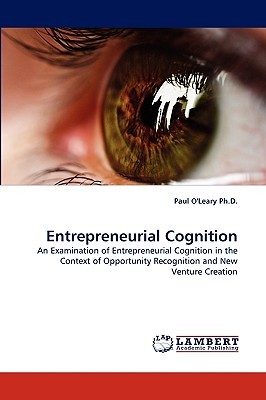
- We will send in 10–14 business days.
- Author: Paul O'Leary
- Publisher: LAP Lambert Academic Publishing
- ISBN-10: 3838377036
- ISBN-13: 9783838377032
- Format: 15.2 x 22.9 x 1.4 cm, softcover
- Language: English
- SAVE -10% with code: EXTRA
Reviews
Description
It has been suggested, that cognitive constructs that have emerged in recent literature provide a more "promising approach" to entrepreneurship research (De Noble et al., 1999). The purpose of this study was to examine the role of entrepreneurial cognition in the context of opportunity recognition and new venture creation. Since 'high self-efficacy appears to be one characteristic strongly linked to entrepreneurial pursuits' (Markman et al. 2002, p. 162), this study tested Boyd and Vozikis (1994) theory, which relates entrepreneurial self-efficacy (ESE) to entrepreneurial intentions and actions, in an Irish context. A national web/postal survey of Irish business executives (n = 1,136) employed pre-tested scales for measuring self-efficacy: the general self- efficacy scale (GSE) (Schwarzer and Jerusalem 1993); and the entrepreneurial self-efficacy (ESE) (De Noble et al. 1999). The evidence suggests that self- efficacy has an important influence on entrepreneurial intentions and actions.
EXTRA 10 % discount with code: EXTRA
The promotion ends in 20d.07:58:20
The discount code is valid when purchasing from 10 €. Discounts do not stack.
- Author: Paul O'Leary
- Publisher: LAP Lambert Academic Publishing
- ISBN-10: 3838377036
- ISBN-13: 9783838377032
- Format: 15.2 x 22.9 x 1.4 cm, softcover
- Language: English English
It has been suggested, that cognitive constructs that have emerged in recent literature provide a more "promising approach" to entrepreneurship research (De Noble et al., 1999). The purpose of this study was to examine the role of entrepreneurial cognition in the context of opportunity recognition and new venture creation. Since 'high self-efficacy appears to be one characteristic strongly linked to entrepreneurial pursuits' (Markman et al. 2002, p. 162), this study tested Boyd and Vozikis (1994) theory, which relates entrepreneurial self-efficacy (ESE) to entrepreneurial intentions and actions, in an Irish context. A national web/postal survey of Irish business executives (n = 1,136) employed pre-tested scales for measuring self-efficacy: the general self- efficacy scale (GSE) (Schwarzer and Jerusalem 1993); and the entrepreneurial self-efficacy (ESE) (De Noble et al. 1999). The evidence suggests that self- efficacy has an important influence on entrepreneurial intentions and actions.


Reviews